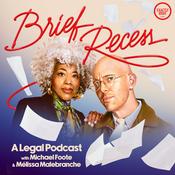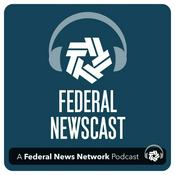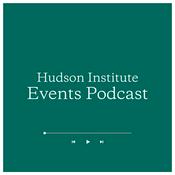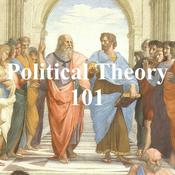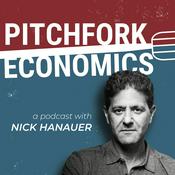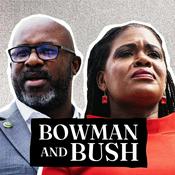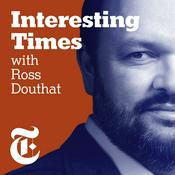Available Episodes
5 of 49
- Best Of: Zadie Smith on Populists, Frauds and Flip PhonesThis is one of my favorite conversations in recent memory — with the writer Zadie Smith. Smith is the author of novels, including “White Teeth,” “On Beauty” and “NW,” as well as many essays and short stories. Her ability to give language to the kinds of quiet battles that live inside of ourselves is part of why she’s been one of my favorite writers for years.“We absolutely need to gather in our identity groups sometimes for our freedoms, for our civil rights. There’s absolutely no doubt about that. But for that role to be the thing that is you existentially all the way down — that is something that I personally believe all human beings revolt from at some level,” she told me when we spoke last September, shortly before Trump’s re-election.It’s ideas like these that I found interesting to revisit now, in a starkly different political climate. In this conversation, we discuss Smith’s novel, “The Fraud,” which Smith wrote with Trump and populism front of mind; what populism is really channeling; why Smith refuses the “bait” of wokeness; how people have been “modified” by smartphones and social media; and more.This episode contains strong language.Mentioned:Feel Free by Zadie Smith“Fascinated to Presume: In Defense of Fiction” by Zadie SmithAmusing Ourselves to Death by Neil Postman“Generation Why?” by Zadie SmithBook Recommendations:The Director by Daniel KehlmannThe Rebel’s Clinic by Adam ShatzThe Diaries of Virginia WoolfThoughts? Guest suggestions? Email us at [email protected] can find transcripts (posted midday) and more episodes of “The Ezra Klein Show” at nytimes.com/ezra-klein-podcast. Book recommendations from all our guests are listed at https://www.nytimes.com/article/ezra-klein-show-book-recs.This episode of “The Ezra Klein Show” was produced by Annie Galvin. Fact-checking by Michelle Harris, with Kate Sinclair. Our senior engineer is Jeff Geld, with additional mixing by Aman Sahota and Efim Shapiro. Our senior editor is Claire Gordon. The show’s production team also includes Rollin Hu, Elias Isquith and Kristin Lin. Original music by Isaac Jones. Audience strategy by Kristina Samulewski and Shannon Busta. The executive producer of New York Times Opinion Audio is Annie-Rose Strasser. Subscribe today at nytimes.com/podcasts or on Apple Podcasts and Spotify. You can also subscribe via your favorite podcast app here https://www.nytimes.com/activate-access/audio?source=podcatcher. For more podcasts and narrated articles, download The New York Times app at nytimes.com/app.--------1:12:51
- The Contradictions of Gavin NewsomGavin Newsom is the 2028 Democratic front-runner. That’s what many of the polls and the Polymarket betting odds say.It’s been widely believed that Newsom wants to run for president someday. But belief that he could be a front-runner was less common. A liberal white guy from a state that much of the country considers badly governed just didn’t seem like the profile the Democratic Party was looking for.But as a Californian who has watched Newsom for a long time, I was surprised by him this year. After President Trump returned to the White House, Newsom started a podcast, interviewing people like Charlie Kirk, Steve Bannon and Michael Savage, which made a lot of Democrats mad. At the same time, Newsom turned himself into the leader of the resistance — trolling Trump on social media and pushing a ballot initiative to end California’s independent redistricting to counter the partisan redistricting effort in Texas.Newsom has been willing to try things and take risks. He has shown a feel for this moment — in politics and in the way attention works now.But it’s still true that he runs a state that the country considers badly governed. California tops the rankings of unaffordable states, at a time when affordability has become a central electoral issue.In this conversation, I ask Newsom about all of this — what he learned this year from talking to figures on the right, how he thinks the Democratic Party can win back voters it lost, why California is so unaffordable and what he’s doing about it.Mentioned:Applebee’s America by Ron Fournier, Douglas B. Sosnik and Matthew J. Dowd“And, This Is Charlie Kirk”“And, This Is Gaming Culture & Gen-Z Nihilism With Content Creator Brandon “Atrioc” Ewing”“And, This Is Michael Savage”“And, This Is Steve Bannon”“Newsom Says Trump’s Attacks Are ‘Not Normal’”“Barack Obama 2004 Democratic National Convention Keynote Speech”Book Recommendations:Built to Last by Jim Collins, Jerry I. PorrasMeditations by Marcus Aurelius1929 by Andrew Ross SorkinThoughts? Guest suggestions? Email us at [email protected] can find transcripts (posted midday) and more episodes of “The Ezra Klein Show” at nytimes.com/ezra-klein-podcast, and you can find Ezra on Twitter @ezraklein. Book recommendations from all our guests are listed at https://www.nytimes.com/article/ezra-klein-show-book-recs.This episode of “The Ezra Klein Show” was produced by Rollin Hu. Fact-checking by Michelle Harris. Our senior engineer is Jeff Geld, with additional mixing by Isaac Jones. Our executive producer is Claire Gordon. The show’s production team also includes Marie Cascione, Annie Galvin, Kristin Lin, Emma Kehlbeck, Jack McCordick, Marina King and Jan Kobal. Original music by Pat McCusker and Aman Sahota. Audience strategy by Kristina Samulewski and Shannon Busta. The director of New York Times Opinion Audio is Annie-Rose Strasser. Subscribe today at nytimes.com/podcasts or on Apple Podcasts and Spotify. You can also subscribe via your favorite podcast app here https://www.nytimes.com/activate-access/audio?source=podcatcher. For more podcasts and narrated articles, download The New York Times app at nytimes.com/app.--------1:46:07
- Interesting Times: She Exposed Epstein and Shares MAGA’s AngerMy colleague Ross Douthat talks to the journalist who exposed Jeffrey Epstein. This episode of “Interesting Times,” with the Miami Herald investigative journalist Julie K. Brown, came out back in July. But since Epstein has very much stayed in the news, I wanted to share it now. The conversation is such a fascinating and helpful explainer of the whole case, and the questions that remain unanswered — with the woman whose reporting led to Epstein’s re-arrest. If you haven’t had a chance to check out “Interesting Times” this year, you really should. The team has produced so many great episodes, especially with leading thinkers and activists on the right. You can find them on the NYT Audio app, Apple, Spotify, Amazon Music, YouTube, iHeartRadio or wherever you get your podcasts. Subscribe today at nytimes.com/podcasts or on Apple Podcasts and Spotify. You can also subscribe via your favorite podcast app here https://www.nytimes.com/activate-access/audio?source=podcatcher. For more podcasts and narrated articles, download The New York Times app at nytimes.com/app.--------59:13
- Best Of: The ‘Quiet Catastrophe’ Brewing in Our Social LivesThe holidays are an unusually social time, filled with parties and family get-togethers. But for most of the year, we feel isolated and unsatisfied with our social lives. Our society isn’t structured to support connection year-round. So it’s an apt time to re-air this episode — a conversation with the writer Sheila Liming about rediscovering the lost art of hanging out.Liming is an associate professor of professional writing at Champlain College and the author of “Hanging Out: The Radical Power of Killing Time.” In the book, Liming investigates the troubling fact that we’ve grown much less likely to simply spend time together outside our partnerships, workplaces and family units. What would it look like to reconfigure our world to make social connection easier for all of us?I spoke to Liming in April 2023. But I find that this conversation provides a clearer sense of what’s gone wrong in our social lives — and how to make “hanging out” with others more fulfilling.Note: We're still gathering questions for an upcoming "Ask Me Anything" episode we'd like to record. If you have any questions for Ezra, please email [email protected] using the subject line "AMA."Mentioned:“You’d Be Happier Living Closer to Friends. Why Don’t You?” by Anne Helen Petersen“The Nuclear Family Was a Mistake” by David BrooksFull Surrogacy Now by Sophie LewisRegarding the Pain of Others by Susan SontagLetters from Tove by Tove JanssonBook Recommendations:Black Paper by Teju ColeOn the Inconvenience of Other People by Lauren BerlantThe Hare by Melanie FinnThoughts? Guest suggestions? Email us at [email protected] can find transcripts (posted midday) and more episodes of “The Ezra Klein Show” at nytimes.com/ezra-klein-podcast, and you can find Ezra on Twitter @ezraklein. Book recommendations from all our guests are listed at https://www.nytimes.com/article/ezra-klein-show-book-recs.This episode of “The Ezra Klein Show” is produced by Annie Galvin, with Jeff Geld, Rogé Karma and Kristin Lin. Fact-checking by Michelle Harris, Mary Marge Locker and Kate Sinclair. Mixing by Jeff Geld. Original music by Isaac Jones. Audience strategy by Shannon Busta. The executive producer of New York Times Opinion Audio is Annie-Rose Strasser. Special thanks to Sonia Herrero and Kristina Samulewski. Subscribe today at nytimes.com/podcasts or on Apple Podcasts and Spotify. You can also subscribe via your favorite podcast app here https://www.nytimes.com/activate-access/audio?source=podcatcher. For more podcasts and narrated articles, download The New York Times app at nytimes.com/app.--------1:15:26
- Fareed Zakaria Thinks Steve Bannon Got One Thing RightOn Monday night, in front of a live audience, I talked to Fareed Zakaria about the different political age he believes we’ve entered. Zakaria is the host of “Fareed Zakaria GPS” on CNN and the author of the 2024 book “Age of Revolutions: Progress and Backlash From 1600 to the Present.” To mark the release of the book in paperback, Zakaria invited me to have this conversation at Symphony Space in New York City. We discuss the “revolution” we may be living through, the forces driving it, and how the Democratic Party can adapt.Mentioned:The Tea Party and the Remaking of Republican Conservatism by Theda Skocpol and Vanessa Williamson"The Time Tax" by Annie Lowrey"Behind Trump and Vance Is This Man’s Movement" by Ezra Klein"The end of progress against extreme poverty?" by Max Roser"What Does the ‘Post-Liberal Right’ Actually Want?" by The Ezra Klein ShowEscape from Freedom by Erich FrommBook Recommendations:A Preface to Morals by Walter LippmannThe Coming Of Post-Industrial Society by Daniel BellThe Lost City by Alan EhrenhaltThoughts? Guest suggestions? Email us at [email protected] can find transcripts (posted midday) and more episodes of “The Ezra Klein Show” at nytimes.com/ezra-klein-podcast, and you can find Ezra on Twitter @ezraklein. Book recommendations from all our guests are listed at https://www.nytimes.com/article/ezra-klein-show-book-recs.This episode of “The Ezra Klein Show” was produced by Jack McCordick. Fact-checking by Michelle Harris, with Kate Sinclair and Mary Marge Locker. Our senior engineer is Jeff Geld. Mixing by Isaac Jones. Our executive producer is Claire Gordon. The show’s production team also includes Marie Cascione, Annie Galvin, Rollin Hu, Kristin Lin, Emma Kehlbeck, Marina King and Jan Kobal. Original music by Dan Powell and Pat McCusker. Audience strategy by Kristina Samulewski and Shannon Busta. The director of New York Times Opinion Audio is Annie-Rose Strasser. Subscribe today at nytimes.com/podcasts or on Apple Podcasts and Spotify. You can also subscribe via your favorite podcast app here https://www.nytimes.com/activate-access/audio?source=podcatcher. For more podcasts and narrated articles, download The New York Times app at nytimes.com/app.--------1:08:19
More Government podcasts
Trending Government podcasts
About The Ezra Klein Show
Ezra Klein invites you into a conversation on something that matters. How do we address climate change if the political system fails to act? Has the logic of markets infiltrated too many aspects of our lives? What is the future of the Republican Party? What do psychedelics teach us about consciousness? What does sci-fi understand about our present that we miss? Can our food system be just to humans and animals alike?
Subscribe today at nytimes.com/podcasts or on Apple Podcasts and Spotify. You can also subscribe via your favorite podcast app here https://www.nytimes.com/activate-access/audio?source=podcatcher.
Podcast websiteListen to The Ezra Klein Show, Brief Recess: A Legal Podcast with Michael Foote & Mélissa Malebranche and many other podcasts from around the world with the radio.net app

Get the free radio.net app
- Stations and podcasts to bookmark
- Stream via Wi-Fi or Bluetooth
- Supports Carplay & Android Auto
- Many other app features
Get the free radio.net app
- Stations and podcasts to bookmark
- Stream via Wi-Fi or Bluetooth
- Supports Carplay & Android Auto
- Many other app features


The Ezra Klein Show
Scan code,
download the app,
start listening.
download the app,
start listening.
